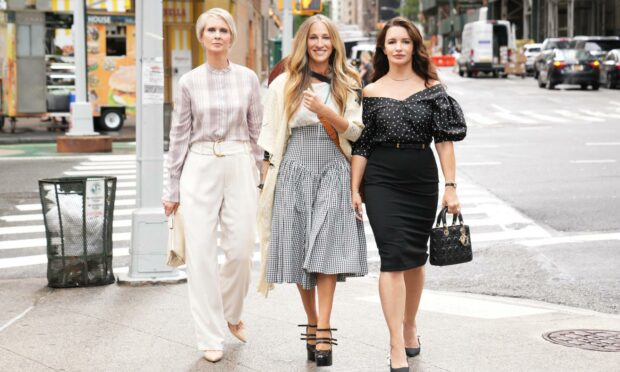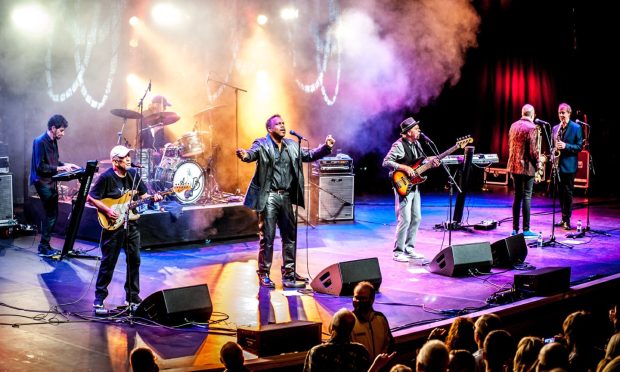The big deal as far as column inches were concerned this week was Sex And the City follow up And Just Like That (Sky Comedy, NOW TV).
It aims to show public affection for the adventures of Carrie, Charlotte and Miranda (but not Samantha) remains just as strong 22 years after Sex and the City first hit our screens, despite the best efforts of two terrible films.
Has it succeeded? After the first episode it’s impossible to say.
Some sections were awful, like the clumsy, exposition-heavy dialogue explaining how the trio have weathered lockdown – and waving Samantha’s absence away.
Maybe it tries too hard
This with the revelation she’s moved to London after a falling-out with Carrie (apparently a reflection, if you’ve seen the Instagram posts, of actors Kim Cattrall and Sarah Jessica Parker’s own non-relationship).
In recent years much reassessment of Sex and the City has taken place in the usual online talking shops, casting it as outdated and elitist in its portrayal of rich and overwhelmingly white characters.
And Just Like That perhaps tries to address this too hard?
Miranda (Cynthia Nixon) is back at university, but her first meeting with her course supervisor Dr Nya Wallace (Karen Pittman) feels bombastically overwritten in its awkwardness as she steps in every racially insensitive pothole on the road.
Even Carrie, formerly the epitome of sexual frankness, is thrown by the crude chat of non-binary comedian and host Che Diaz (Sara Ramirez) on the podcast where she’s a guest.
The infamous finale
It’s between the cracks of the silliness, where we see these women who once had it all seemingly losing their grip on the world, that the show occasionally threatens to break into something profound.
Then there’s that already infamous finale – we won’t spoiler it completely, but somebody dies and the exercise bike manufacturer Peloton will forever be blamed.
With this, the show appears to own its position as a rare story about women getting older, and if it ditches some of the corniness, it could yet be onto a winner.
Social Media, Anger, & Us
David Baddiel: Social Media, Anger & Us (BBC Two, iPlayer) is the show which every user of social media needs to urgently watch, for an insight into the addictive qualities of the medium.
Baddiel has sent over 65,000 Tweets in his life, which he tries to give up briefly here – and its inherent fostering of what the tech visionary Jaron Lanier calls “paranoia and irritability, the mildest versions of fight or flight.”
It follows, therefore – as Baddiel lays out – that opposing countries and private interests have used this very nature of social media to create instability or attack individuals, in a forum which he points out has no consequences, kindness or mercy.
“It’s like someone’s flicked a switch and said, now be human in a different way,” he’s told.
Baddiel’s perceptive 20-year-old daughter Dolly is one of the stars of the show.
She goes beyond describing how her teenage anorexia was exacerbated online to explaining how those who feel they don’t have an identity can pick one off the shelf on the internet, with all the problems that entails.
Does it seem like the world’s gone wrong on a fundamental level in the last decade?
Perhaps, this programme implies, it’s just your perception of it that’s gone wrong since you started using social media.













